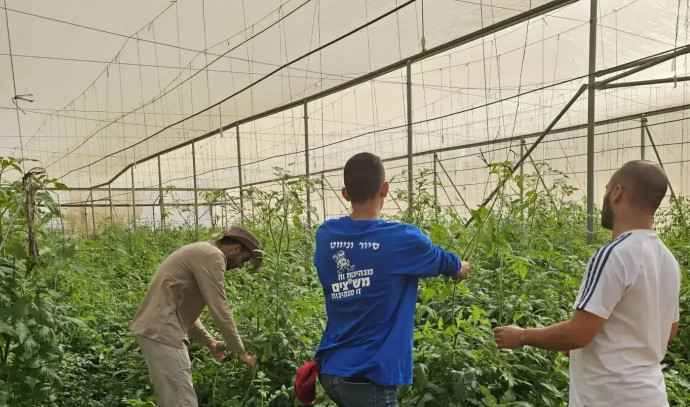One of the world’s leading entities in advanced agriculture is exploring opportunities for significant economic upliftment in the Bedouin community of the Negev. The intriguing twist? It’s an Israeli enterprise founded by former Israeli Air Force personnel.
Traditionally, much of Bedouin society revolves around agriculture, primarily focusing on animal husbandry, seasonal crops, and spice cultivation. The LR Group stands out as a highly successful business venture specializing in advanced agriculture on a global scale. Founded by ex-members of the Israeli Air Force, the group implements advanced agricultural practices in disadvantaged regions worldwide. While the company’s headquarters have been primarily global, recent developments hint at a potential shift towards local investment.
A delegation comprising key stakeholders and experts from LR Group embarked on a visit to evaluate opportunities for promoting agricultural initiatives within the Bedouin community in the Negev. The envisioned plan includes the establishment of a cutting-edge agricultural demonstration farm within Bedouin society, focusing on livestock, crop cultivation, and harnessing solar energy. This initiative aims to introduce significant economic changes by leveraging professional expertise alongside advanced technologies.
As part of the programming examination, the LR group also included into the working teams the Reifman Institute for Desert Research, the research and development center of the Ramat Negev Regional Council, and Dr. Mazen Abu Siyam, a specialist in Bedouin agriculture.
Hagai Reznik, head of the Rieger Institute for Desert Development, stated: “We encounter more and more business groups on a variety of topics entering investments in the Negev, whether for business development or residential development. Promoting Bedouin society in the Negev is a barrier to the development of the entire Negev. We saw mutual solidarity on October 7th from our Bedouin friends, and this opportunity must be seized.”
“As is known, these days we are writing at the institute the ‘Reifman Law’, alongside unique formulations for dealing with land, settlements and education, as well as planning issues related to economic development and advanced agriculture,” Reznik concluded. “In the coming decade, if the country will make a turnabout in the Negev issue, it will be able to change the region from end to end.”




